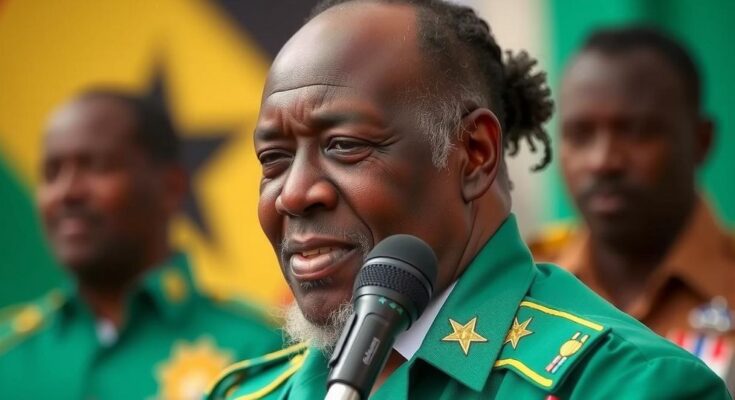The United States has accused Sudan’s RSF of genocide, sanctioning its leader, Mohamed Hamdan Dagalo, for systemic atrocities. Secretary of State Antony Blinken noted that the RSF has committed acts of violence, including targeting civilians and sexual violence. The RSF responded with accusations of double standards against the US. Growing humanitarian crises have left millions in urgent need of assistance, and neither the RSF nor the military is seen as legitimate leaders of Sudan.
The United States has levied accusations of genocide against the Sudanese paramilitary group, the Rapid Support Forces (RSF), and has sanctioned its leader, Mohamed Hamdan Dagalo, commonly known as Hemedti. US Secretary of State Antony Blinken stated that Dagalo is being held accountable for his involvement in “systematic” atrocities during the ongoing 20-month conflict, which has resulted in significant violence against the Sudanese populace. Blinken condemned the RSF and allied militias for committing horrific acts, including the murder of vulnerable individuals and the perpetration of sexual violence against women based on ethnic identity. He characterized their actions as genocidal, citing the targeting and killing of civilians, including infants.
In reaction to the US sanctions, the RSF has criticized the US for what they perceive to be double standards and ineffective handling of the Sudanese crisis. An adviser to Hemedti, El-Basha Tbaeq, claimed that such decisions may further complicate an already dire situation and impede efforts to negotiate peace. The RSF has engaged in armed conflict with the Sudanese military since April 2023, which has drawn widespread condemnation and scrutiny regarding the conduct of both factions in this conflict.
The humanitarian fallout from the war has been devastating, with some estimates indicating that approximately 150,000 individuals have lost their lives. As famine has been declared in parts of Sudan, nearly half of the population, amounting to 24.6 million people, are in desperate need of food assistance. Secretary Blinken remarked that neither the RSF nor the Sudanese military qualifies to lead the nation, stating that both parties share culpability for the violence and suffering being inflicted on the people of Sudan. The recent sanctions prohibit Hemedti and his immediate family from entering the United States, along with freezing any assets they may possess within its borders. In addition, the US has targeted seven RSF-affiliated companies based in the United Arab Emirates and an additional individual for facilitating the procurement of weaponry by the paramilitary group.
The context of this situation stems from the ongoing conflict in Sudan that erupted in April 2023, characterized by intense hostilities between the Rapid Support Forces (RSF) and the Sudanese military. This conflict has been marked by significant humanitarian crises, escalating violence, and gross human rights violations. The US has increasingly occupied a position of concern regarding the actions of both parties, particularly the RSF, which is accused of perpetrating atrocities against civilians, including ethnic cleansing and mass murder. The international community is grappling with the severe implications of this conflict and strives to address the humanitarian needs arising from it, with millions of Sudanese people reportedly facing food insecurity and deprivation of essential services.
In conclusion, the US has officially accused the RSF of committing genocide, imposing sanctions on its leader, Hemedti, in an effort to hold him accountable for systematic atrocities committed against the Sudanese people. The response from the RSF reflects ongoing tensions and disputes regarding external interventions in the crisis. As the humanitarian situation in Sudan deteriorates, the international community continues to monitor the developments, pressing for a resolution that addresses the needs of the people affected by the conflict.
Original Source: www.bbc.com




